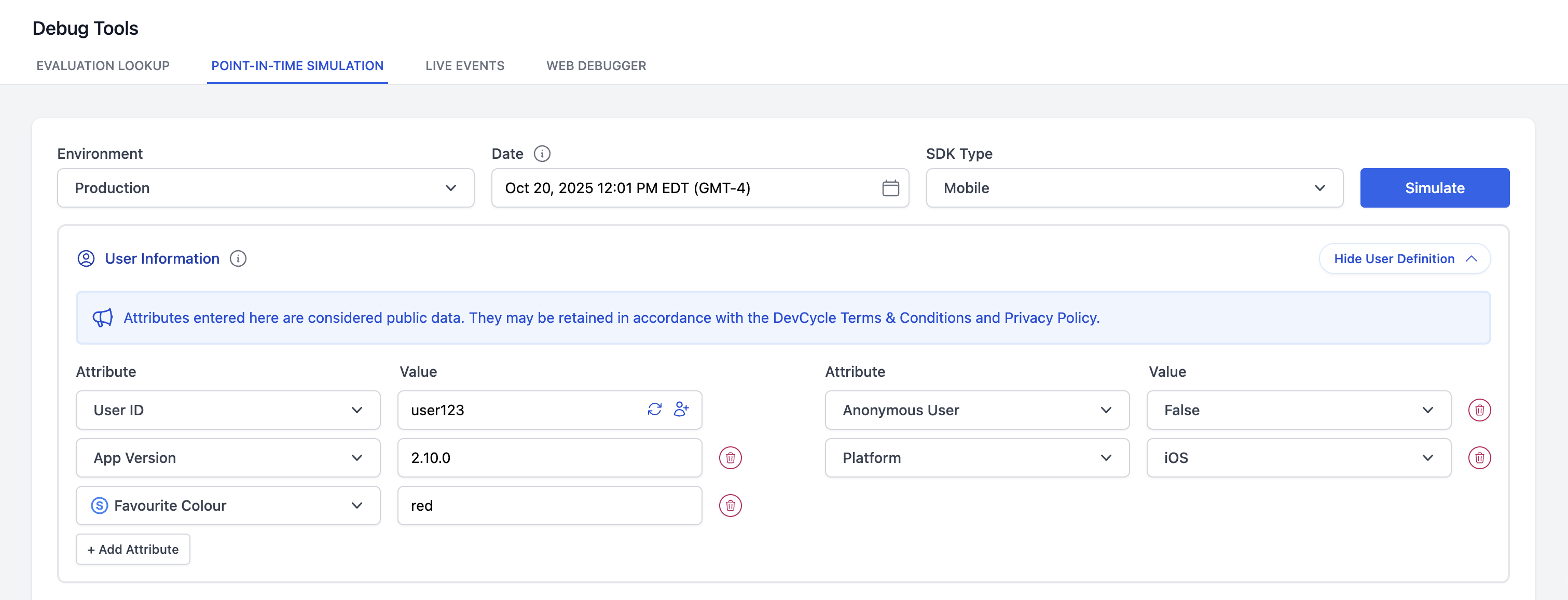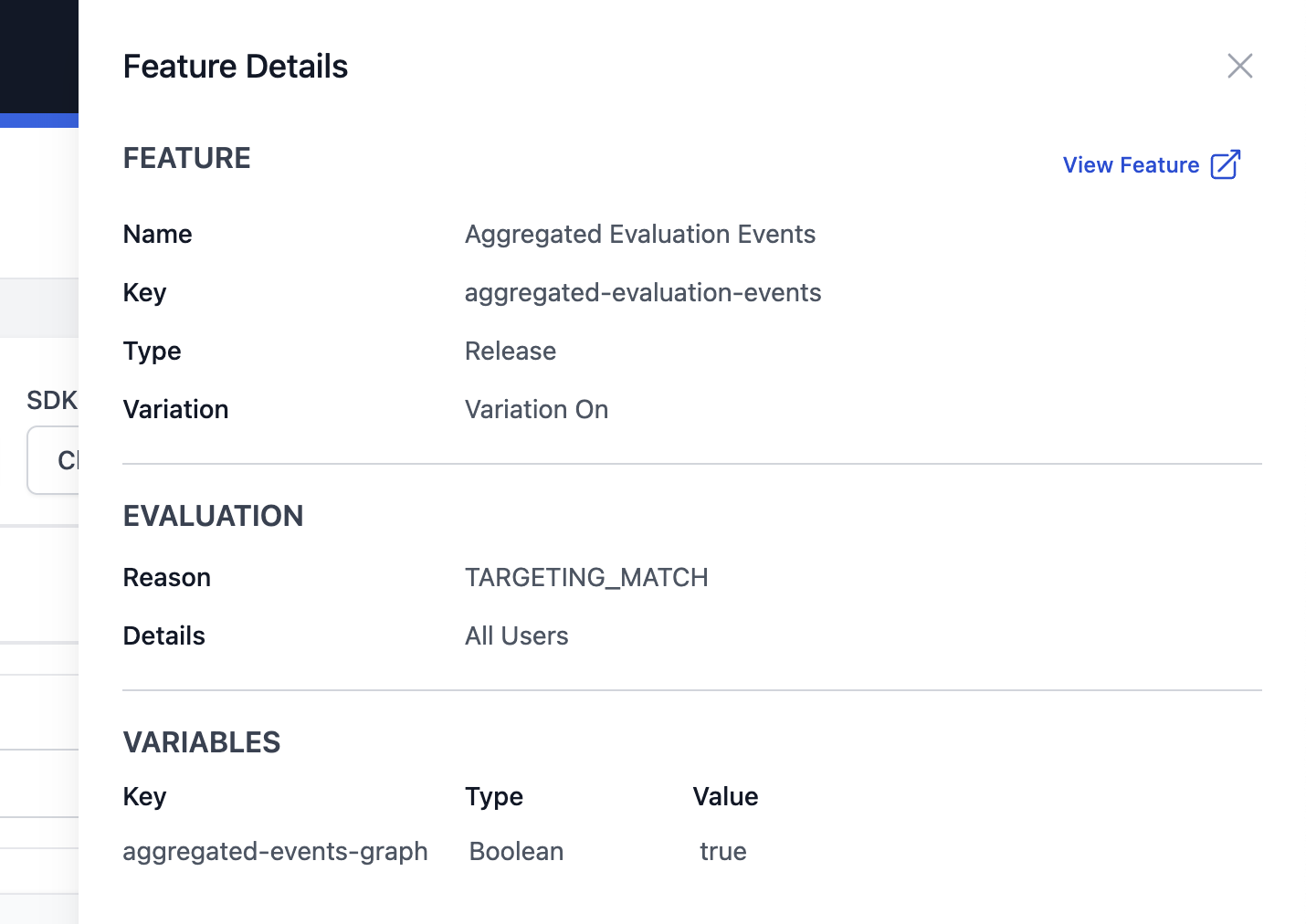Point-in-time Simulation
The Point-in-time Simulation debugging tool lets you simulate what a user's Features and Variables would have been at a certain point in time. Select a past date to see what configuration the user would have received on that day.
This is only a simulation, the results are not a historical record of what they actually received at the time specified. Features that have rollouts or schedules may not return the proper value at the datetime specified.
To check what users actually received, use the Evaluation Lookup tab.
Why use it?
- Determine what Features and Variables were active for a given user at a particular date in the past
- Mock user or device data to test which Feature configurations a user should receive at a certain point in time
Usage
Point-in-time Simulation allows you to test what Features and Variables a user may receive or could have received. This works by first retrieving the Feature configuration that was active on the given date, for your given SDK Type and Environment. Then, the Features will be filtered out based on the Targeting Rules that match the provided User Definition.
Start by selecting the Environment, SDK type, and the Date you want to simulate. Then build the User Definition by adding any built-in or custom attributes. A User ID is required, but an anonymous User ID may also be used.

Simulate from Evaluation Lookup
You can also use the same user fetched after performing a search with a user_id in the Evaluation Lookup debug tool. You can click Simulate from the User Information section and it will open a new Point-in-time Simulation tab with all of the same user attributes filled in automatically.

Once you're ready, hit the Simulate button to get results.
Results
The simulated results display the Features and Variables that the user would have been bucketed into, along with the Variation they were served. You can toggle between results grouped by Feature and by Variable, see details below.

Group by Feature
When grouped by Feature, each row displays a Feature with the following details:
- The Feature Name and Key
- The Variation that was served
- The number of Variables in each Feature
- The Evaluation Reason
Click View Details to get more info about the Evaluation Reason and the Variables within the Feature.

Group by Variable
When grouped by Variable, each row displays a Variable with the following details:
- The Variable Key
- The Variable Value
- The associated Feature and Variation
- The Evaluation Reason
Click View Details to get more info about the Evaluation Reason, Variable and Feature.